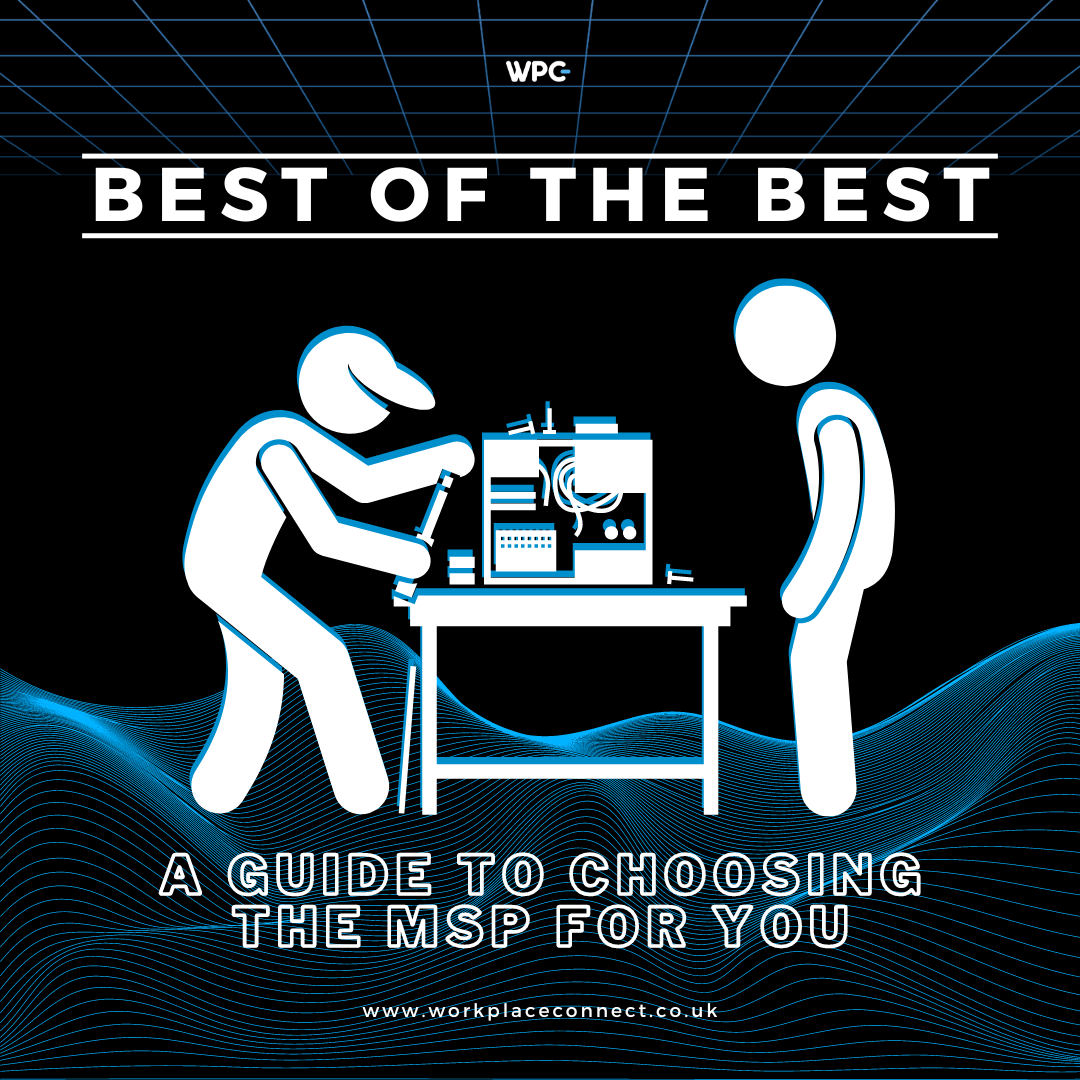Technology is constantly changing. While improvements in hardware, software, and networking can create opportunities and efficiency that were unimaginable even ten years ago, this rapid growth poses a significant challenge to company owners. Whether you’ve been operating independently for a while or you’re in charge of a small or midsize company that’s been around for a while, how you handle your data, networks, computers, and other technology can determine how successful your firm is.
Also, the COVID-19 epidemic forced businesses all over the world to adopt completely new workplace paradigms. For the safety of their workers, clients, and communities, many organizations had little time to prepare and were forced to dive headfirst into remote work settings. The difficulty in handling your corporate technology has substantially increased due to the constant problem of keeping safe systems for organizational cooperation while sustaining efficiency, not to mention hackers eager to exploit new weaknesses for their own gain.
In addition to trying to balance your IT demands independently or adding more IT staff members, MSPs provide a third option.
Even if you do have a budget for a team of experienced full-time IT professionals, they might not always have the knowledge required to thoroughly examine every part of your company’s technology. Technology difficulties are increasing too quickly for one individual or even a small team to address alone. A full-time job in and of itself, keeping up with cybersecurity dangers and knowing how to minimize them on top of all the daily responsibilities that come with operating and maintaining your networks and systems. This is where using an MSP comes in.
The best managed service provider for your organization will, however, rely on a number of factors, including the nature of your industry, your location, and many more. But let’s define it first before we go any further.
What Is a Managed Service Provider (MSP)?
A managed service provider uses a continuous, subscription-based model to supply IT services. In this case, owners of businesses can obtain active management and ongoing online or on-site support in the data center (hosting) of their MSP or even in the data center of a third party.
An MSP often oversees all or a portion of an organization’s business-related IT operations:
- Applications
- Active administration
- Asset management
- Backups and disaster recovery
- Business communications, such as email
- Cloud computing
- Continuous optimization of IT environments using relevant metrics
- Cloud services
- Cybersecurity services, including, but not limited to, antivirus and firewalls
- Data storage
- Device management
- Networking
- Software licenses
- Software updates and patches
- Staff training
The MSP’s Offerings and Service Scope
There is no one-size-fits-all option for managed IT. Every firm has specific IT needs that depend on the actual business model and objectives. Similar to MSPs, not all of them provide the same services; some concentrate on particular IT specialties and narrowly focus on particular business structures.
What specifically are you looking for from a managed IT provider? Identifying gaps, vulnerabilities, and areas that require improvement in your IT infrastructure while taking into account your short- and long-term IT goals. Choose an MSP that can handle all of those demands after that.
Top 10 Tips for Choosing The Right Managed Service Providers:
1. Are They Experts in Managed Security Services (MSS)?
While the majority of MSPs offer a range of specialized services, many don’t offer cybersecurity services. Some just provide a basic border or surface-level protection, but in the present threat environment, these measures are inadequate against advanced attackers.
The complexity of malicious actors and the attack channels they employ is rising, and an MSP that is not prepared to tackle them could be more detrimental to your company than beneficial.
According to research, ransomware assaults result in the closure of up to 75% of small firms. Sadly, there are situations when this is partially attributable to the fact that they worked with an IT partner who didn’t offer specialist-managed security services.
This is why picking an MSP that offers managed security services is essential. A reputable MSP can assist you in filling in protection gaps and improving your overall security posture by providing proactive emergency response and sensitive data protection.
2. What Is the Track Record of the MSP?
It’s crucial to conduct research before signing on with an MSP. You cannot solely rely on their sales materials and website. You should start by reading their customers’ reviews. You may find out more about them by reviewing their own endorsements, seeking neutral reviews online, and checking out their partnerships with related businesses.
If your potential MSP routinely obtains positive evaluations, it’s a strong sign that they are focused and exceptional at customer support and problem-solving.
Before deciding to work with a managed service provider, be careful to research their yearly retention rates, the extent to which they have already partnered with Microsoft and other tech behemoths, and the size of their clientele. Once you’ve done that, look into their credentials.
Lack of information raises the possibility that the MSP’s service might be unreliable or result in unforeseen charges down the road. Due diligence must be done in order to avoid making a costly mistake when choosing an MSP and committing to a legal agreement.
3. Does the MSP’s Offer Comply with the Requirements?
The majority of MSPs are not sector-specific. They are capable of serving any business. Nonetheless, a small number of people focus exclusively on certain industries. They include non-profit, legal, manufacturing, and healthcare institutions.
Ask the MSP about their industry specialization if you work in a sector where one or more of these apply. You can determine if they are a suitable fit for your company using this method.
If your potential MSP also provides compliance services intended for highly regulated businesses, that will be an extra benefit.
4. Service-Level Agreements (SLAs)
An SLA guarantees specific things while outlining all of the parties’ obligations. For open tickets or service uptime, the SLA could include guaranteed response times.
Make sure to include in your SLA a requirement for 24/7 IT support, including remote assistance. It’s critical since your company cannot afford any potential downtime caused by the unavailability of your managed services partner.
A cloud service provider might offer a 99.9% uptime guarantee, which means that they would compensate you if there was a 0.1% downtime or less. SLAs are essential for guaranteeing business continuity, hence they are also crucial.
5. What Are The Service Models That Your MSP Provides?
The majority of managed service providers provide a variety of services. Does the MSP offer several service tiers that can be changed or removed as necessary? Do they adopt a preventative strategy or do they continue to use the break/fix method?
It’s essential to confirm that they can meet all of your needs without outsourcing certain work. You don’t want a data breach to reveal that your MSP was using a third-party service to handle cybersecurity, after all.
Having a managed services partner who could expand with you would be beneficial. The organization will need new technologies as it grows and expands to keep up with customer demand. So, it’s critical to know if they can effortlessly scale their services in the coming months and years.
The MSP’s offering ought to be adaptable as well. Why should anyone choose a managed services package that is tightly planned when no two firms are exactly alike? Since an MSP offers greater customization and flexibility, you can be sure that you’ll only pay for what you require.
6. Transparency
The secret to good cooperation is transparency. What your MSP has done for you and what they have planned to do in the future should be made clear to you.
Your data security policies and long-term planning benefit when a managed IT services provider is consistently open and transparent. In order to promote visibility, collaboration, and confidence, MSPs must also be upfront about their strategy, culture, tools, procedures, and methodologies.
7. What Kind of Employees Do They Have?
Does your potential MSP manage everything internally with people or does some of the work get outsourced? In any case, be sure that all IT personnel—internal, external, or a combination of the three—are qualified and experienced.
Workers should be able to claim a variety of expertise inside their organizations, or at least some of them. In general, it is better if the workforce has the greater experience. For instance, picking an MSP with senior security and compliance experts with a solid track record would be a good choice if your sector is highly regulated.
8. Can your MSP protect you 24/7?
Your MSPs must be accessible when you need them because they are responsible for sustaining and maintaining your critical data. You have to know that any possible data crisis or cybersecurity threat is being handled as soon as possible in case things don’t go as planned.
That entails at all hours of the day and night, on the weekends, and on legal holidays. Your MSP will be able to deal with any possible issues or warning signs proactively rather than reactively if your networks are monitored effectively.
10. Is your MSP updated on the newest trends and strategies?
An MSP must stay current on the newest developments in IT systems and information technologies. Being up-to-date can help protect your data and safety and provide you with a competitive edge as technology develops at a dizzying pace.
So, check to see if the MSP you partner with is spending money on state-of-the-art training tools and dedicating time to teaching staff how to use and efficiently manage them. They ought to have a solid plan for recovering from disasters.
In A Nutshell
The appropriate MSP can be crucial in helping your company expand, save expenses, and streamline its digital operations. So don’t gamble with service providers who lack experience. Before selecting an IT partner, do your due diligence and exhaustive study. Check to see if the MSP can provide all the equipment, services, and knowledge required to support, secure, and expand your IT infrastructure.
Your business is in capable hands with Workplace Connect. We’ve been in the IT business for years, during which time we’ve earned Microsoft-certified Silver Partner status along with other appreciation awards and achievements. With a trusted MSP partner keeping things humming behind the scenes, you can concentrate on building your organization’s productivity, resilience, and bottom line.
Get in touch and end your MSP search with Workplace Connect today!







